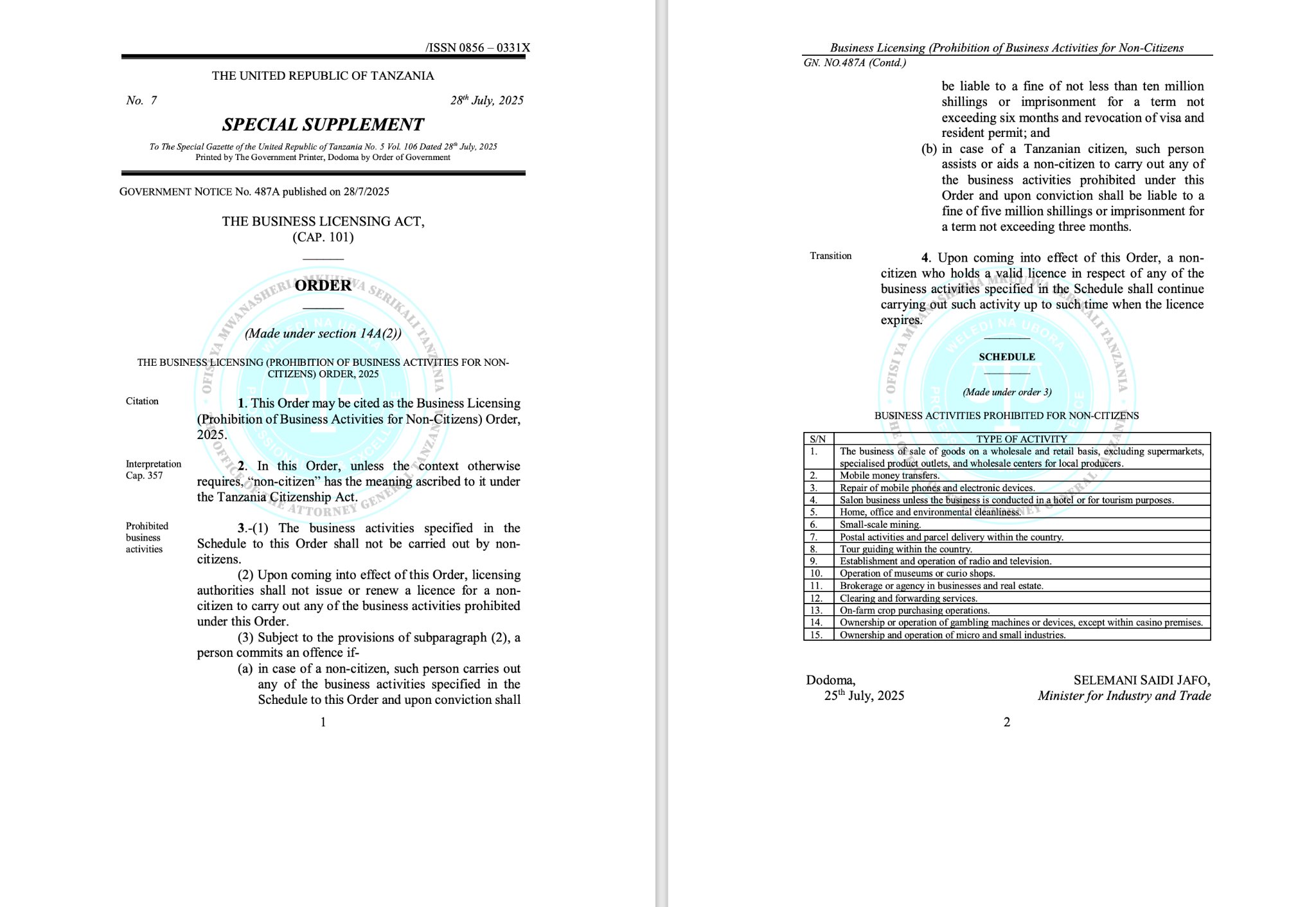The Tanzanian government has officially banned foreigners from operating in 15 specific business sectors, citing the need to protect local jobs and boost citizen led enterprises. The new directive, signed by Industry and Trade Minister Selemani Saidi Jafo on July 25th 2025, immediately restricts non-citizens from engaging in several small and medium scale businesses traditionally dominated by Tanzanians.

According to the government, foreigners are now prohibited from engaging in activities such as mobile money transfers, repairing mobile phones and electronic devices, running salons (unless within hotels or for tourism) and providing cleaning services for homes, offices and the environment. Small-scale mining, postal and parcel delivery and tour guiding within Tanzania are also off-limits.
The ban further extends to retail and wholesale businesses, excluding supermarkets and specialized product stores as well as owning or operating radio and television stations, museums, curio shops and micro or small industries. Also included are brokerage services in business and real estate, crop purchasing directly from farms and gambling machine operations outside of casinos.
Minister Jafo emphasized that these changes are part of a broader policy to increase citizen participation in the economy and address growing concerns that foreigners, including Chinese nationals, are dominating sectors meant for locals. Complaints have been particularly frequent in Dar es Salaam’s Kariakoo market, where some foreign traders are said to be pushing Tanzanians out of business.
Licensing authorities have been instructed not to issue or renew business permits for non-citizens in these sectors. Foreigners currently holding valid licenses may continue operating only until those licenses expire.

Penalties for breaching the new rules are steep. Foreigners found operating in the prohibited sectors face fines of up to TZS 10 million (around Ksh500,000), visa and permit cancellations, or up to six months in prison. Tanzanians found aiding foreigners in running these businesses could face up to TZS 5 million in fines or a three-month jail term.
The new regulations align Tanzania with several other African countries, including Uganda, Rwanda, Ghana and Nigeria, which have reserved certain sectors for their citizens in a bid to strengthen local economies and curb unemployment.
This announcement comes shortly after the Ministry of Finance revealed another major policy shift, starting January 2026, foreigners entering Tanzania will be required to purchase a mandatory travel insurance policy worth approximately Ksh5,700. The insurance will cover emergency medical treatment, evacuation and lost baggage. However, nationals from East African Community (EAC) and Southern African Development Community (SADC) countries will be exempt from this requirement.






